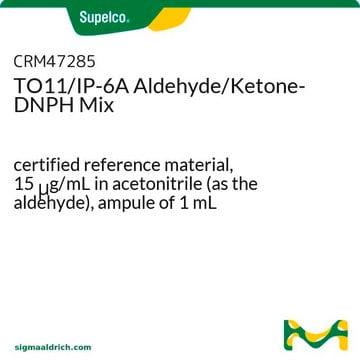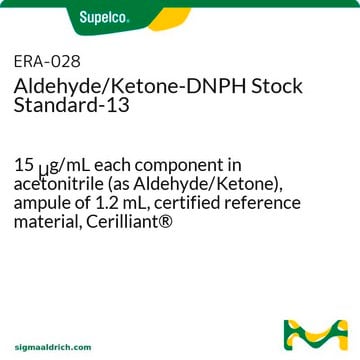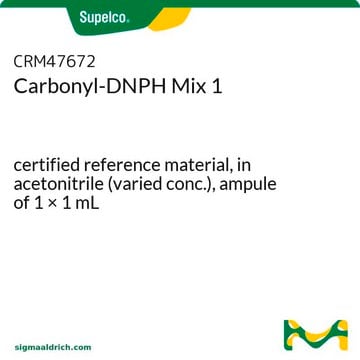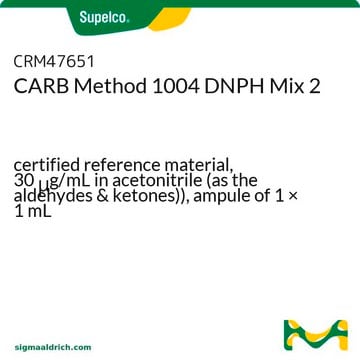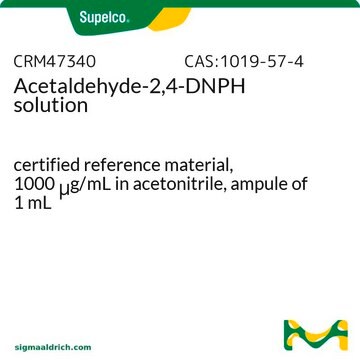CRM4M7285
TO11/IP-6A Aldehyde/Ketone-DNPH Mix
certified reference material, 15 μg/mL each component in acetonitrile (as the aldehyde or ketone), ampule of 3 × 1 mL
About This Item
Productos recomendados
grade
certified reference material
TraceCERT®
Quality Level
product line
TraceCERT®
CofA
current certificate can be downloaded
packaging
ampule of 3 × 1 mL
concentration
15 μg/mL each component in acetonitrile (as the aldehyde or ketone)
technique(s)
HPLC: suitable
gas chromatography (GC): suitable
application(s)
environmental
format
multi-component solution
storage temp.
2-8°C
¿Está buscando productos similares? Visita Guía de comparación de productos
Application
- For the determination of air-dispersed formaldehyde and carbonyl compounds (CCs) as vapors by denuder-filter sampling and gas chromatography method of analysis.
- To investigate the impact of NO, NO2 and CO in air samples on the capture and retention of formaldehyde and acetaldehyde with the DNPH-cartridge. The reaction products and chromatographic interferences are identified using chromatography techniques.
Other Notes
Legal Information
Analito
signalword
Danger
Hazard Classifications
Acute Tox. 4 Dermal - Acute Tox. 4 Inhalation - Acute Tox. 4 Oral - Eye Irrit. 2 - Flam. Liq. 2
Storage Class
3 - Flammable liquids
wgk_germany
WGK 2
flash_point_f
35.6 °F - closed cup
flash_point_c
2.0 °C - closed cup
Elija entre una de las versiones más recientes:
¿Ya tiene este producto?
Encuentre la documentación para los productos que ha comprado recientemente en la Biblioteca de documentos.
Nuestro equipo de científicos tiene experiencia en todas las áreas de investigación: Ciencias de la vida, Ciencia de los materiales, Síntesis química, Cromatografía, Analítica y muchas otras.
Póngase en contacto con el Servicio técnico